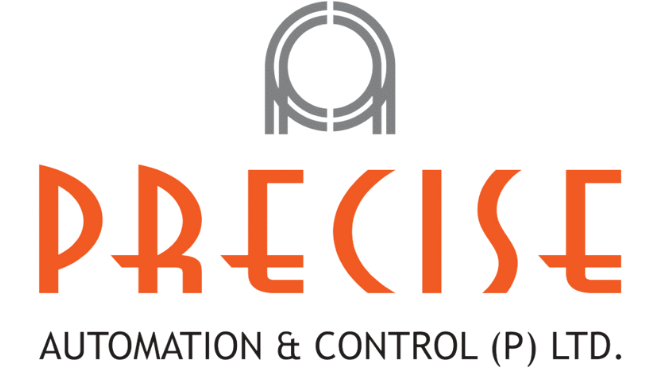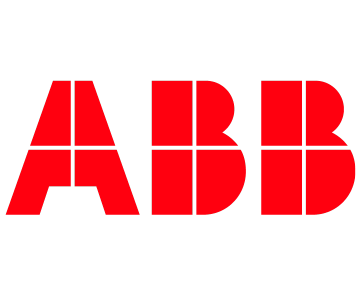What is Electrical Control Panel | How it Works | Why Industry Requires Electrical Panels | ABB | Precise Automation & Control
Electrical control panels are the collection of electrical devices that control the functioning of different industrial equipment using electrical power. These panels help keep orderly control on industrial equipment to ensure that it achieves multiple mechanical goals. It is a closed metal box that has two main components: the panel structure and the electrical components. Let’s take a closer look into what an industrial control panel is, as well as its many benefits.
Inside an Electrical Control Panel:
Panel Structure: The panel structure of an electrical control panel is a metal box with a back panel that looks similar to a breaker box. There is an enclosure with one or two doors, depending on its size, made of metals like steel or aluminum. These boxes pass stringent quality checks. Moreover, they come with the safety rating to ensure that it is explosion-proof, contamination-proof, waterproof, and safe for indoor and outdoor use. Furthermore, it also has a panel mounted at the back of the metal box, which supports the wire ducts.
Electrical components: There can be multiple electrical components present in an industrial control panel, depending on the functions it has to perform.
Electrical Control Panel Electrical Components:
There are types of electrical components exist within an electrical panel enclosure which define and organize the several different functions carried out by the panel. These components include:
:Main circuit breaker -This is like the disconnect of the main electrical panel leading into a home or office. Main circuit breakers handle between 120V–480V in most industrial applications.
:Surge arresters -This component prevents lightning strikes or utility power surges from damaging the electrical components inside the panel due to overvoltage.
:Transformers -Depending on the incoming voltage, transformers may reduce voltage to 120V for various components or step down voltage to 24V in instances where incoming power is 120V.
:Terminal blocks -These blocks help to organize and distribute the array of wires coming from various sources to different electrical devices.
:Programmable Logic Controller (PLC) -This is essentially a CPU contained inside the control panel. This unit is the brains of the control panel, providing monitoring and control of the various mechanical processes. In will include various inputs and outputs to and from mechanized functions of the production equipment.
:Relays and contactors – These on/off switches control mechanized functions based on commands from the PLC. Smaller relays control functions like lights and fans. Larger relays, called contacts, control more advanced functions like motors.
:Network switches – The communication hub of the control panel, network switches facilitate communication between the PLC and the various network compatible devices on the production line.
:Human Machine Interface (HMI) -These components allow an operator to monitor or control certain functions of the machinery. Common HMIs include video monitors, joysticks, buttons, switches, and keyboards.
DO YOU NEED A CUSTOM ELECTRICAL CONTROL PANEL?
The design of a custom electrical control panel will depend upon the complexity of the system it operates. Designs can include a simple electrical relay system or a more complex PLC system with single or multiple PLC networks with IIoT or SCADA integrations. Indicators that your organization might need a custom panel design include a need for more advanced operation of various production operations; more cohesive, universal control of systems; and/or a need for improved HMI.
These panels are essential for industrial automation as they constantly monitor different industrial controls. This way, they help experts control and organize production objectives. Industries can get the panels custom-made to their requirements. They can opt for a simple relay system, or a much more complex industrial control panel, for cohesive control of mechanical aspects of their machinery and different industrial equipment. They offer enhanced reliability by constantly monitoring equipment and providing experts with data every minute. The panels are capable of handling complex electric controls. If you hire an expert team to design these panels as per the necessary requirements, they can manage the most complex industrial setup. These panels are weatherproof, which means you can place them both indoors and outdoors as they won’t rust or get damaged with changing weather conditions. Electrical control panels are hazard-proof, ensuring no risk of electrical shocks or fire outbreaks (it is safe to work in and around the panels). These days, many companies provide “aesthetically pleasing” industrial control panels. As such, these panels do not interrupt the “beauty” of buildings. Electrical control panels simplify the process for industrial experts. With the controls provided on a panel, experts can design and organize the process control of different machines and operations. With increased efficiency, industries can expect a reduction in their overall processing cost. As experts can control the mechanical processes, there is little chance of any flaw or process giving an undesired outcome.
Electrical control panels are an essential part of many industries, including food and beverage, manufacturing, oil and gas, agriculture, and more. To start this process, get in touch with a leading manufacturer of industrial control panels to receive the necessary technology that meets all of your needs and expectations.
ELECTRICAL CONTROL PANEL MAINTENANCE:
Maintenance is another key consideration for electrical control panels. Facilitating maintenance is a critical element in custom electrical control panel design. Maintenance elements should include:
-Clearly labeled components, wiring, and terminals.
-Capability to monitor the status of the various electrical connections.
-Control of particulates and dust within the enclosure.
-Pest control measures.
We are serving the nation for last 20 long years for both Govt & Private sector units collaborating with ABB with best possible industrial quality standards.


Leave a Reply